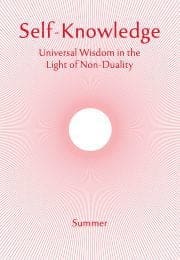Meditation Practice: One Ocean of Consciousness Exists
A session led by the Warden at Shanti Sadan
If someone discloses to us that they practise meditation, it is likely that the techniques they employ will differ from our own—such is the vast range of meditation options now available to us. But what most forms of meditation have in common is that we are required to withdraw for a short time from the outer world, to sit in stillness, usually with our eyes closed, and to concentrate our mind on a prescribed theme. The practice demands of us a certain kind of courage. This is due to the fact that sitting still and turning inward is not our normal way of functioning, and therefore goes against the flow of our habits.
For many who teach meditation, the practice is not necessarily associated with the spiritual or religious side of life. Rather it may be offered as a means to help us in the management of our outer life. A little time set aside for concentration and self-calming, helps strengthen our nerves and gives us a degree of self-control that stabilises our emotions and increases our stamina and efficiency. As many secular organisations have discovered, this kind of meditation can lead to improvements in performance, and reduce tension among members of staff. Such meditation has become popular and it does not necessarily give attention to the nature or depth of the mind itself. Indeed, many forms of meditation make it a virtue— even a safeguard—that their teaching steers clear of in-depth psychology, philosophy, religion, spirituality or mysticism. And this reassures many that meditation is safe and there is no risk of interference with the way of life we feel at home with.
But if we go back to the origins and evolution of the practice of meditation, we find that a rather different motivation inspired people to turn within and meditate. Here there is an appreciation of the depth of our mind. There is also an openness to ways and means of transforming the mind for the better. On this side of the meditation spectrum, the notion of betterment or well-being goes deeper than the self-improvement brought about through purely secular techniques. Betterment now involves the expansion of our consciousness and the quest for lasting peace and self-mastery. We learn from the teachers of this kind of meditation that each of us has sublime potentialities based on the fact that our true nature, our real Self, is not confined in the body or mind, but when truly understood and realised, turns out to be infinite, eternal, pure being, limitless consciousness that transcends all limitations.
Subscribe or enrol for free guest access to read all of this article and Self-Knowledge online.
Already subscribed or enrolled? Log in:


